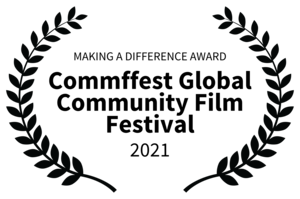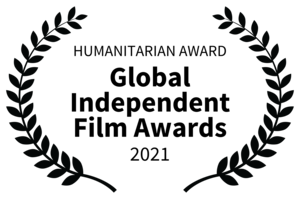THE PEACE CorPS STORY
Founded during the Cold War, the Peace Corps stands as an icon of American idealism. From the beginning its mission of world peace and friendship proved to be a towering task. Imbued with the unbounded energy and vision of its charismatic leader, Sargent Shriver, and thousands of vigorous volunteers, the story of the Peace Corps is a uniquely American tale. From the political machinations to establish not just a brand new government agency, but a new concept in international relations, to the growing pains of an agency striving to define its mission, A Towering Task takes viewers on a journey of what it means to be a global citizen.
Host country nationals, Peace Corps Volunteers and staff, and scholars and journalists take a closer look at peace building, economic development, and political independence through the Peace Corps’ more than six decades of trials and transformations. Before being evacuated because of the pandemic, Peace Corps volunteers were serving in over 60 countries and more than 200,000 have returned since 1961, but America is reevaluating how to engage with the rest of the world. Now as the Peace Corps rebuilds with increased nationalistic tendencies in America and around the globe, and Peace Corps Volunteers at the forefront of some of the most pressing themes facing the global community, A Towering Task asks: What role should the Peace Corps play in the 21st century?
DOCUMENTARY CLIPS
Exceptionally well produced and presented, and unreservedly recommended for personal, community, highschool, and college/university library DVD collections, "A Towering Task: The Story of the Peace Corps" will prove of immense value to viewers with an interest in the Peace CorpS and its history.
Library Bookwatch: December 2023
★★★★★
BEHIND THE FILM
In 2013, after a community screening of our documentary about conservationist Aldo Leopold (Green Fire), the team that had also produced The Greatest Good, a public television documentary on the 100-year history of the U.S. Forest Service, found in casual conversation that, in addition to being documentary filmmakers, three members of our team were returned Peace Corps volunteers. So, naturally we started discussing the possibility of a big-picture documentary about the Peace Corps: Had it been done? Would there be an audience for it? Could it be funded? And while we found that the answer to the first question was a surprising ‘no,’ we believed that the other two questions could be answered with a resounding yes. And so we embarked on this journey of telling an important story of American citizenship and the global community.
Since then we have visited three countries: Liberia, the Dominican Republic, and Ukraine as a sample of Peace Corps countries. On the ground we interviewed Volunteers and staff, scholars and journalists, community leaders and community members. We have gathered interviews across the US with icons of the Peace Corps community, Returned Peace Corps Volunteers from across the globe, former and current staff, as well as scholars and journalists.
We worked feverishly to assemble these important voices, the treasure trove of archival materials, music, graphics, and narration into the story of the Peace Corps. It is our hope that this footage will both preserve the legacy of the Peace Corps and inspire a national discourse about our world community.
THE PRODUCERS
A Towering Task is an independent documentary. Alana DeJoseph (producer/director) is a Returned Peace Corps Volunteer and documentary filmmaker. She has been a member of the production teams that brought you The Greatest Good: A Forest Service Centennial Film and Green Fire: Aldo Leopold and a Land Ethic for our Time. Dave Steinke is a documentary film producer, cameraman, and former Forest Service public affairs director. He was producer on both The Greatest Good and Green Fire. Shana Kelly is a screenwriter and book editor with numerous titles to her credit. All three strongly believe in the urgent need for an objective, in-depth look at the history and future of the Peace Corps. Visit our Filmmakers page to learn more.
MEET SOME OF THE
VOICES FROM THE DOCUMENTARY
js-hero-timeline
-
Bill Josephson || Founding Voices
“Most of the Kennedy advisors… wanted to start small and be experimental, and we felt that a program of that kind was doomed to failure, that either you were going to tap into the desire for service that was represented by the Michigan students, for example, and provide something that was significant, or you weren't.”
Bill Josephson, Founding General Counsel of the Peace Corps and co-author of the A Towering Task white paper

-
Maria Shriver || Journalist, Daughter of Sargent Shriver
“Uncle Jack first spoke about the Peace Corps at the University of Michigan but Daddy was the one who actually made it real. He was the one on the ground who had to conceive of it, who had to implement it, who had to go through all the different bureaucracies, who had to go to the countries to see that American men and women could come into those countries and work in those fields. It required I think everything of him. It required his faith, it required his energy, it required his optimism, it required his diplomacy, his political sense.”
Maria Shriver, Journalist, Daughter of Sargent Shriver

-
Gerry Rice || Peace Corps Historians
"The vision and scale for the Peace Corps reflected the big ideals of the time, the belief that a grand notion such as world peace was not only attainable, but that the US could play a major role in making it happen."
Gerard T. Rice, Author: The Bold Experiment: JFK's Peace Corps

-
Charmazel Dudt || Peace Corps India Training Staff
“There has to be a lot of self-questioning. Why am I doing this? And what do I have to offer somebody who's been practicing farming for eighty years? And I'm a music major, you know, or I'm an English major. What do I know? Yeah, there has to be rigorous self-examination, I think.”
Charmazel Dudt, Peace Corps India Training Staff, St. John’s College 1965

-
Elizabeth Cobbs || Peace Corps Historians
"The Peace Corps never was easy and it will never be easy, because it was struggling with certain central dichotomies. Did it exist mainly to enable one nation to live out its own values? Or to provoke other nations to change theirs? Was it a means of demonstrating human solidarity with others' trials or was it a means of implementing solutions?"
Elizabeth Cobbs, Author: All You Need is Love: The Peace Corps and the Spirit of the 1960s

-
Juana Bordas || Returned Peace Corps Volunteer Chile
“I am Nicaraguan by birth and the United States has invaded Nicaragua several times. I mean, we can sit around here all we want and say that the United States has only helped people but that’s not history. We have a lot of healing to do with the rest of the world because the American people are good people. I had to prove myself to the community and they had to see that I was there to really serve them. Peace Corps volunteers come back and they’re a lot more savvy about what we can do to build a more peaceful world. ”
Juana Bordas, Returned Peace Corps Volunteer Chile 1964-1966

-
Ellen Johnson Sirleaf || Presidents
"It's a global village, and there is no way in today's communication revolution that you can close the doors, you can stop people from traveling. It's in our interest to keep interchanging, to keep talking, to be learning about the experience of others so that we can share information and knowledge and be able to address and respond to changing circumstances, changing global conditions."
Ellen Johnson Sirleaf, President of Liberia, 2006 - 2018

-
Jimmy Carter || Presidents
"Well, I’m glad that the Peace Corps still has the word peace in its name, which I think to me and other people, it may be a constant reminder that the United States of America, which has been involved in more wars, perhaps, than any other country on earth since the Second World War, we’ve been at war about thirty different times still have a commitment to the overall concept and high ideals of peace."
Jimmy Carter, 39th President of the United States, son of Returned Peace Corps Volunteer, Lillian Carter, and grandfather of Returned Peace Corps Volunteer, Jason Carter

-
Maureen Orth || Journalist, Returned Peace Corps Volunteer Colombia
“It took me years to understand how deeply the Peace Corps experience affected my ability to be a good journalist because it was in the Peace Corps that I really learned empathy.”
Maureen Orth, Journalist, Returned Peace Corps Volunteer Colombia 1964-1966

-
John Coyne || Peace Corps Historians
"The Peace Corps ... is mom’s apple pie. It’s positive. If you say to someone I was the director of the Peace Corps, that means you’re all right, you’re a good guy, you’re a good woman; that’s the legacy that is brought to the role by all the work that volunteers have done for fifty years."
John Coyne, Author, Editor, Returned Peace Corps Volunteer Ethiopia 1962-1964, Peace Corps Staff (1960s and 1990s), Editor of PeaceCorpsWorldwide.org, and "unofficial historian of the Peace Corps" according to Sargent Shriver

-
Harris Wofford || Co-Founder of the Peace Corps and Former United States Senator
“What other peoples most need from America is a country that understands the very complex, challenging world that we now live in.”
Harris Wofford, Co-Founder of the Peace Corps and Former United States Senator


















